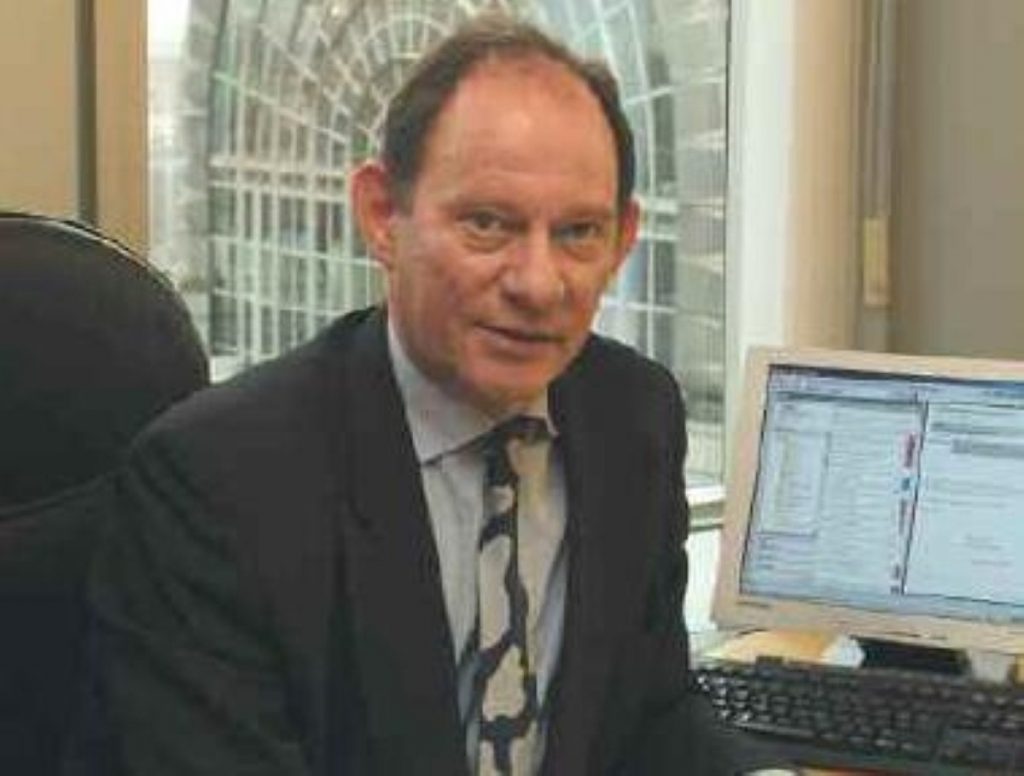Comment: Will the army allow Egypt real reform?
Friday’s planned demonstration in Cairo was a test of will.
By Edward McMillan-Scott MEP
When I left Tahrir Square on Monday morning it was empty. The milling crowds of protesters had, by agreement, left the square to traffic and order, Egyptian-style, was restored. As European parliament vice-president for democracy and human rights, I had spent the weekend meeting members of the Coalition for Change and other demonstrators, as well as EU diplomats and other observers. I even attempted a Youtube report.
As I reported that night to my MEP colleagues, the atmosphere of fear had lifted. Families strolled together happily: people showed me the Victory sign. I concluded that “the resignation of Hosni Mubarak is expected to lead to a democratic future, even if the army’s interests need to be protected in the transition”.


Before a debate in the European parliament on Wednesday I called one of the young middle class activists who had organised the protests. “Are you still an optimist?” I asked. He said he was, but he and his colleagues would not give up the pressure on the army to fulfil all its reform pledges, including the release of thousands of political prisoners. The leadership of the Coalition for change, whom I first met at a working dinner at the home of Dr Ayman Nour, the liberal leader who stood against Mubarak in 2005, is still divided over the extent to which the army can be trusted.
When I reported back to my colleagues, I said that there was a sense was among reformists in Cairo that the army has been true to its word so far. Indeed, at the beginning of this week the Army stated “it will not be an alternative to the legitimacy approved by the people”. But concerns have mounted in the last days. Secular democratic parties are not involved in the dialogue the Army currently has with the Muslim Brotherhood. The process for reforming the constitution is far too quick and is not inclusive. Representatives of the old regime are there but there are no women.
The pledge that elections would take place within six months was welcomed, but a faster timetable was then introduced, making it impossible for the impoverished liberal parties like Wafd (‘Delegation’) or El Ghad (‘Tomorrow) to organise. The Muslim Brotherhood gets huge financial support from the Gulf states and is experienced in fighting elections. I observed the fraudulent 2005 parliamentary elections, when they were allowed to stand as ‘independents’, but their posters referred to ‘spiritual solutions’ leaving no doubt as to the allegiance of the candidate. While the Brotherhood will not put up a presidential candidate, it will fight across the country for parliamentary seats.
The army, seeking to preserve its privileges, its real estate and other commercial interests, will almost certainly back a presidential candidate. This may be the popular boss of the Arab League, Amr Moussa. Although he was a former foreign minister for the Mubarak regime, his international role has distanced him from its recent unpopularity.
The reformist parties were accused by Mubarak of receiving foreign funding. As far as I know, and I have been following the fortunes of El Ghad in particular for nearly ten years, this is simply not true. The question for Liberal International, which held its 2009 conference in Cairo, is how to boost its local member, El Ghad. Aymar Nour, imprisoned twice for his political activities and whom I got released in 2005, is calling – like his British counterpart Nick Clegg – for proportional representation in the elections.
The young demonstrators are determined that the future political make-up of Egypt should reflect their role in the revolution. The hugely-popular Wael Ghoneim – a Google manager who was held and beaten up during the recent violence – has already been drawn into talks with the administration.
Foreign governments, especially those in Europe and the US, are having to make major reassessments as the Arab world makes up its own mind at last. I regard it as shameful that for so long we turned a blind eye to the brutality, corruption and unfairness of countries like Egypt, but especially Egypt – the most important country in the Arab world and North Africa.
Now, reformists are thinking not only about the elections to come and the nature of government, but also about how to deal with the crimes of the past. Will there be a Truth Commission as in South Africa, or the more punitive South American model?
In all these transition questions, whether in Egypt and Tunisia and I hope elsewhere, the EU and its member states, especially those who have moved from dictatorship to democracy during the post-1989 evolutions, have much to offer. And the EU should refocus its Neighbourhood Policy, which includes North Africa and the wider Middle East, to reward reform. The 110 million euro given to Cairo by Brussels each year matches the $100 million of non-military US aid. These are nominal figures for a country of over 80 million.
Above all, we should make sure that the forthcoming elections are free and fair. It is the least we can do for the hundreds who died this month for freedom, democracy and human rights.
Edward McMillan-Scott is vice-president of the European Parliament for democracy and human rights. A former leader of the Conservative MEPs, he joined the Liberal Democrats in March 2010 after protesting against David Cameron’s new EU alliance.
The opinions in politics.co.uk’s Speakers Corner are those of the author and are no reflection of the views of the website or its owners.

